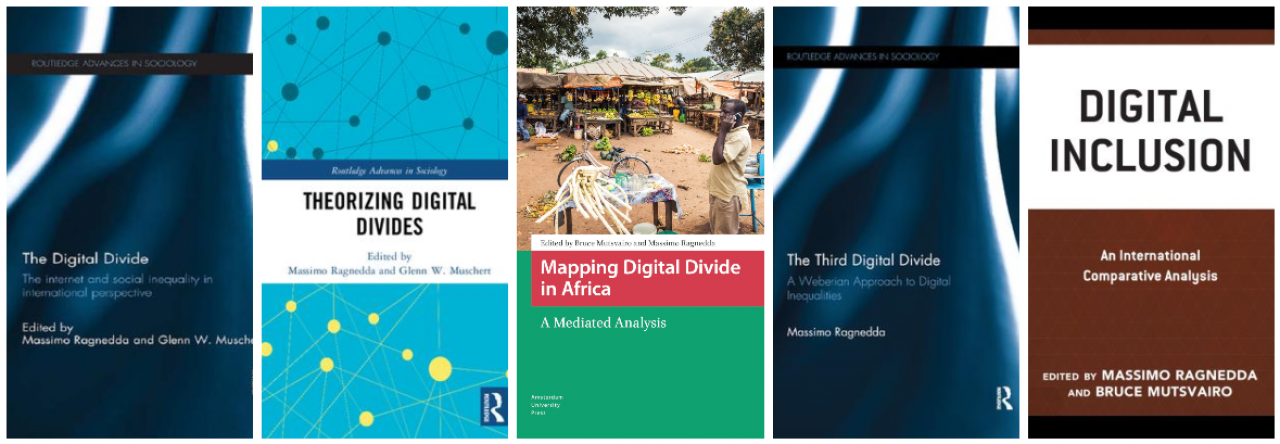Here is a sneak peek (along with the word cloud) of our forthcoming book project, titled “Digital Environmental Poverty” (Palgrave Macmillan, 2024). This has been a collaborative effort with Maria Laura Ruiu, who is the principal author of this book. In a world shaped by the rapid acceleration of digital technologies, especially intensified by the global pandemic, our forthcoming book dives deep into the profound transformations occurring in contemporary society. These shifts extend beyond the realms of technology; they’ve had a profound impact on societal structures and dynamics. We recognize the urgency for scholars and policymakers to explore the multifaceted consequences of this digital evolution, particularly concerning social inequalities and the evolving nature of poverty in the digital age.
Our book takes a holistic approach to understanding the complex phenomenon of digital poverty. We firmly believe that poverty cannot be exclusively defined by economic limitations. Instead, it’s crucial to consider the intersection of digital, socio-economic, and environmental factors. The book begins by deconstructing the conventional concept of poverty and explores how technology access plays a pivotal role in today’s society. We discuss the importance of “digital capital” and emphasize its role in shaping social structures and opportunities in the digital era. Moreover, we delve into how the quality of the natural environment significantly influences poverty levels.
At the heart of our book also there is the intricate interplay between social, digital, and environmental poverty. We argue that marginalized communities often lack the means and opportunities to shape policies that affect their lives, which can hinder sustainable development. By adopting a nuanced approach to framing digital poverty, we consider exposure to environmental degradation, the capacity to use digital technologies sustainably, and the broader social context.
We recognize the critical role of algorithms and artificial intelligence in perpetuating digital poverty and the need for effective governance and policy-making. The book has revisited the Digital Poverty Framework developed by the Digital Poverty Alliance, with the significant addition of the environmental component. We explore how environmental transformation is connected to digital transformation, and we discuss the potential for long-term sustainability in the face of ecological degradation.
The book concludes with case studies and policy recommendations, aiming to inform strategies that promote inclusive digital recovery while safeguarding the environment.


Lascia un commento